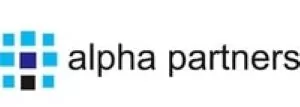A balance sheet is a financial statement that summarizes the company's accounts, prepared to specify the liabilities and assets. The financial statement of a company certifies the "true and fair value" of the state of affairs1. In recent past, there has been an unending saga regarding the entries on the balance sheet to be treated as an acknowledgement of debt/liability for the purposes of proceedings qua Section 18 of the Limitation Act, 1963 ("the Act") and especially for proceedings which are initiated against corporate debtors under Insolvency and Bankruptcy Code 2016 ("IBC"). The provisions of Section 18 Act provides that if a party acknowledges a debt/liability in writing prior to expiry of the limitation period, then a fresh period of limitation shall be computed from time such acknowledgment of debt/liability was made by the debtor.2
The applicability of the provisions of the Act in IBC proceedings had been a matter of discussion for quite some time. On 11.08.2017, Ld. National Company Law Appellate Tribunal ("NCLAT") in the Neelkanth3 judgment held that the provisions of the Act do not apply in the IBC proceedings. However, the Second Amendment to the IBC which was enacted on 17.08.2018, added Section 238A in the IBC. The Section 238A effectively made provisions of the Act including Section 18 applicable on proceedings initiated under IBC. Thus, the law was settled by the Indian Legislature that the provision of Section 18 of the Act shall apply to the proceedings initiated under IBC, however, the question whether the entries made in the balance sheet by the corporate debtor would extend the period of limitation in terms of Section 18 or not, was left unanswered and therefore, the judgment passed by Hon'ble Supreme Court of India in Asset Reconstruction Company (India) Ltd. v. Bishal Jaiswal & Another4 gains significance.
Acknowledgement of Liability
The principles pertaining to acknowledgement of liability was settled by Apex Court in LC Mills v. Aluminum Corporation of India Ltd.,5 whereby the Apex Court explained 'acknowledgement of liability' as a statement which need not explain the exact nature of the liability, however, it should establish a 'jural relationship' of that of a creditor and debtor with an intention that can be expressed or inferred from the circumstances considering the document of acknowledgement as a whole. The Supreme Court in Asset Reconstruction Company (India) Ltd. v. Bishal Jaiswal & Another,6 has now held that acknowledgment of liability/debt through liabilities on balance sheet extends the limitation period, thus making entities liable to pay such dues.
The entire conundrum began when five judges' bench of NCLAT in the matter of V Padmakumar v. Stressed Assets Stabilisation Funds (SASF) & Anr.,7 in a majority decision of 4:1 concluded that the filing of balance sheet will not be acknowledged as debt under Section 18 of the Act and thus, no fresh limitation shall be computed from the time such entries are made in the balance sheet. Hence an application for initiation of corporate insolvency resolution process under the Code cannot be initiated upon expiry of the stipulated limitation period.
Bishal Jaiswal's case before NCLT & NCLAT
Prior to proceeding further with findings of authorities, it would be prudent to lay down the brief background of the Bishal Jaiswal v Asset Reconstruction Company India Ltd.,8 case. The Corporate Power Ltd. (corporate debtor) availed loan for setting up a thermal project in Jharkhand in the year 2009. However, in 2013 the account of the corporate debtor was declared as a Non-Performing Asset (NPA) and in 2018, the Asset Reconstruction Construction Company ("the Creditor") approached the Ld. National company Law Tribunal ("NCLT") for initiation of corporate insolvency resolution proceeding under Section 7 of the Code, for payment of its dues on the ground that the copies of balance sheets acknowledged the debts which were due to be payable by the corporate debtor. The NCLT admitted the application. Being aggrieved by such findings, the corporate debtor filed an appeal before NCLAT challenging such admission.
The journey to resolution of entire dispute began when the Referral Bench of NCLAT called for reconsideration of the precedent laid down by the Five Judges' Bench in V. Padmakumar by NCLAT. The Referral Bench was of the opinion that the judgment passed in V. Padmakumar is devoid of reasons and contrary to the precedents wherein the courts have elucidated that entries in balance sheet shall be treated as acknowledged as debts under the Act.9
In response to the Referral Bench's opinion, the Five-Member Bench rebuked the opinion of Referral Bench and used the word 'judicial indiscipline' and stated that it was inappropriate on part of Referral Bench to doubt the correctness of the judgment passed by Full Bench in V Padmakumar. Furthermore, the NCLAT relied upon the judgment of Apex Court in Babulal Vardrarji Gurjar v. Veer Gurjar Aluminium Industries Ltd.,10 which held that Section 18 of the Act has no application in the proceedings initiated under the Code. The Full Bench of NCLAT upheld the dictum laid in V Padmakumar that balance sheet liabilities cannot be approved as a voluntary acknowledgment of debt under the Act. This ruling had created a dilemma for the creditors to recover their dues from the corporate debtors in case the limitation period had expired.
The End of Conundrum by the Apex Court
The Three Judges' Bench of the Supreme Court in Asset Reconstruction Company (India) Ltd. v. Bishal Jaiswal & Another,11 has now held that entries of liabilities in balance sheets amounts to acknowledgment of liabilities in terms of Section 18 of the Act. The Hon'ble Supreme Court had set-aside the NCLAT Full Bench ruling of V. Padmakumar and has settled the position of law which ended the debate on the aforesaid issue.
The Apex Court has settled the position of law by exhaustively analyzing the Calcutta High Court judgment, Bengal Silk Mills Co. v. Ismail Golam Hossain Ariff,12 wherein it was held that the acknowledgment of liability made in the balance sheet can amount to acknowledgment of debt under the Act. The Hon'ble Supreme Court further held that the Companies Act, 2013 makes it mandatory to file balance sheets but there is no compulsion on the entities to make an admission of debt which they do so consciously and voluntarily. It was observed by the Three Judges' bench of Apex Court that the balance sheet cannot be taken out of purview of Section 18 of the Act merely because the company is obligated by way of a statute to file it. The acknowledgment of liability is established merely if such acknowledgement establishes a "jural relationship" between a creditor and the debtor and the same is clearly established by the entries in the balance sheet. In fact, Section 18 of the Act requires an acknowledgment of liability to be in writing, however, it does not prescribe any format of writing. Thus, the balance-sheet should be deemed to be a valid acknowledgement in terms of Section 18 of the Act.
However, while recording its finding pertaining to the acknowledgement of liability through entries made in balance sheets, the Hon'ble Supreme Court has observed that there cannot be a straight jacket formula which can be applied in each and every case. In order to determine whether such entries would amount to acknowledgement, the Courts are required to check whether such entries are made unequivocal, or any caveat has been attached to such entries. If there is any caveat attached to such entries, then the Courts are required to examine such caveats in order to determine on the basis of facts and circumstances of each case whether such entries would amount to acknowledgment of debt and eventually extend the limitation in terms of Section 18.
Conclusion
The contemporary judgment of the Supreme Court has not only resolved the debate but has settled the position of law with respect to entries of balance-sheets to be treated as acknowledgement of debts in terms of Section 18 of the Limitation Act 1963. Although, mere existence of entries in balance sheet shall not automatically extend the limitation as there is a caveat attached by the Hon'ble Supreme Court that Courts are required to check whether such entries are unequivocal, or the entries are made with any caveat for the purposes of acknowledgment of liability. If there is any caveat then in such circumstances, the Courts are required to check whether the entries would amount to acknowledgement of liability or not and only then the Courts can determine whether the limitation can be extended in terms of Section 18 or not. However, this will certainly enlarge the discretionary power of NCLT, a quasi-judicial body, to determine whether the entry amounts to acknowledgement or not and further, whether the limitation can be extended or not. Even with the existence of such caveats at hand, it would be safe to presume that this principle of law will be beneficial for several creditors who can now initiate insolvency proceedings even after expiry of three-year limitation period if the entities unequivocally acknowledge their dues in their balance sheets. Since, the provisions of Section 18 is applicable on suits which have been filed with respect to any property or any right, therefore, the findings given in the Asset Reconstruction judgment will also have impact on limitations applicable on filing of civil suits. Nonetheless, this will certainly increase the number of insolvency proceedings along with other litigations which may get filed even after expiry of the limitation period solely to harass and arm-twist any cor
Footnotes
1. The Companies Act, 2013, S.129.
2. The Limitation Act, 1963, S.18.
3. Neelkanth Township and Construction Pvt. Ltd. v. Urban Infrastructure Trustees Limited, Company Appeal (AT) (Insolvency) No. 44 of 2017
4. Civil Appeal No. 323 of 2021
5. (1971) 1 SCC 67.
6. Supra
7. [2020] 221 CompCas153.
8. MANU/NL/0379/2020.
9. South Asia Industries Pvt. Ltd. v. General Krishna Shamsher Jung Bahadur Rana,1972 SCCOnLine Del 185.
10. AIR 2020 SC 4668.
11. Civil Appeal No. 323 of 2021.
12. 1961 SCC OnLine Cal 128.
The content of this article is intended to provide a general guide to the subject matter. Specialist advice should be sought about your specific circumstances.


